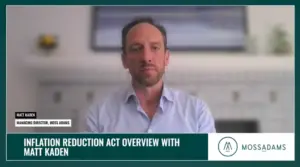Fossil Fuel 2030 Reduction Goal Not Expected to Be Met
Key Points:
- The UN Environment Program study found fossil fuels to double by the deadline of the 2030 reduction goal.
- Climate experts argue the world must reduce greenhouse gases to help curb global warming.
- Countries, though, are putting economic growth over sustainability concerns.
Commentary:
A study published by the United Nations Environment Program found that countries are still set to extract double the amount of fossil fuels in 2030, which wouldn’t meet the 2030 reduction goal set by the Paris agreement back in 2015. Climate experts believe in order to help curb global warming, the world must stop adding to the amount of greenhouse gas in the atmosphere by 2050. With these estimates being concerning to experts, we reached out to Ted Dhillon, who is the Figbytes CEO. We asked him if the reason for this estimate was because countries don’t adopt an exact energy alternative.
Abridged Thoughts:
The creation of infrastructure for the generation and distribution of renewable energy is expensive. This is one of the reasons why the shift to a fossil-fuel-free energy future has been so slow. When you look at countries like India and China, economic growth will always trump sustainability concerns regarding policymaking. This is primarily because of the local politics and the geopolitical situation in those regions. But that’s a reality that we have to live with. If these two nations don’t join the program, so to say, then we really will not move the needle in the right direction for all of humankind. Therefore, we have to develop mechanisms to incentivize these nations and reduce the costs for them to accelerate their move away from fossil fuels.






